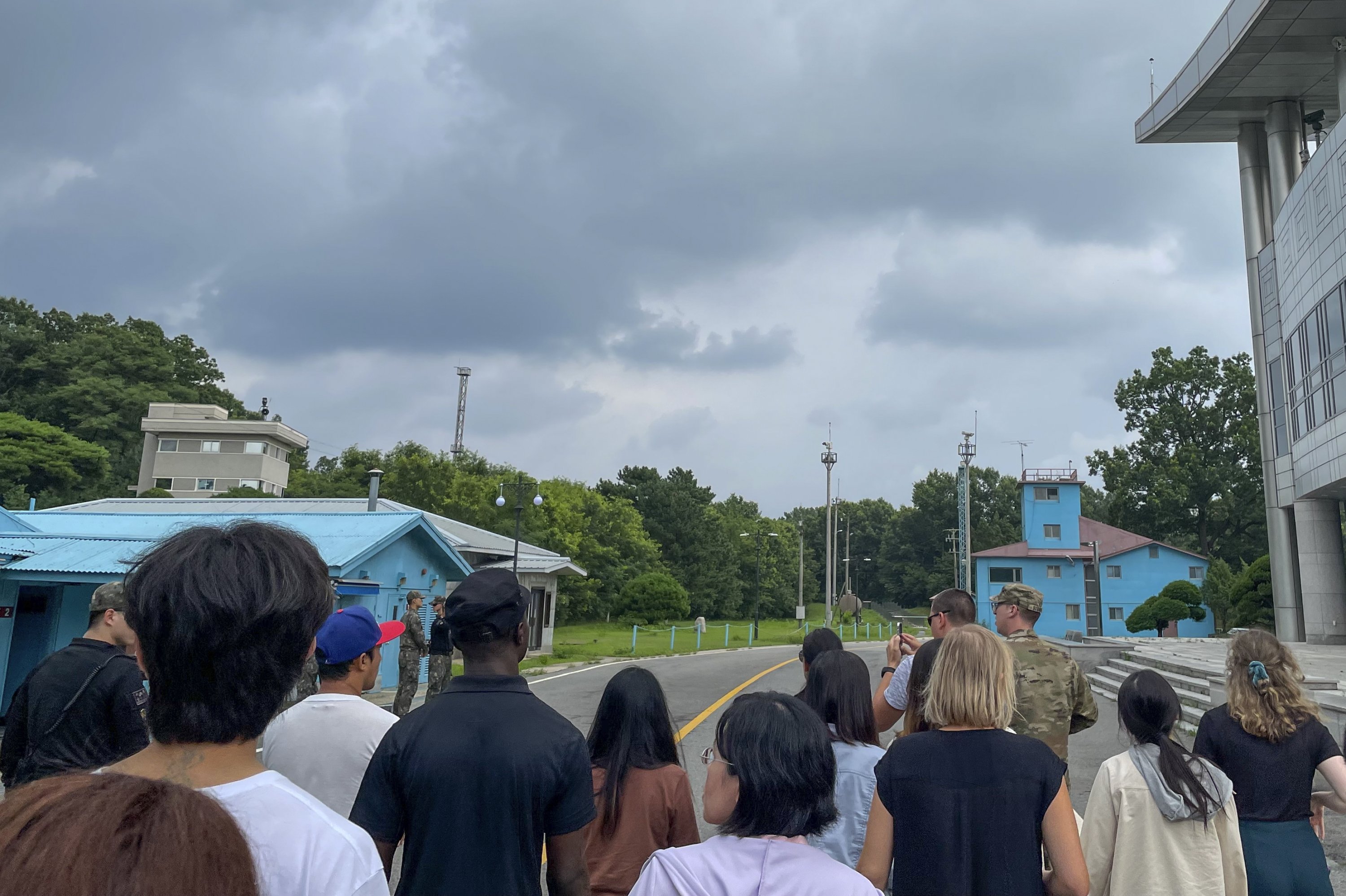© Turkuvaz Haberleşme ve Yayıncılık 2026
U.S. soldier Travis King sprinted across the heavily fortified border into North Korea from the South this week with COVID-19 concerns and restrictions turning the already enigmatic nation into an even more isolated realm.
The pandemic's grip on North Korea was severe, halting all international travel and most trade.
The regime constructed a formidable border wall, and shocking reports surfaced of border guards shooting those attempting unauthorized crossings during the early days of the outbreak.
Though the country has gradually resumed trade, and masks are no longer mandated, Pyongyang remains on edge, fiercely guarding against any breaches of its borders, whether sanctioned or not.
King's motive for his brazen border escapade remains shrouded in mystery.

U.S. officials revealed that he was facing military disciplinary action and appeared to have deliberately made the crossing.
Yet, his fate hangs in the balance, as U.S. authorities grapple to ascertain what lies ahead for him.
Andrei Lankov, director of the Korea Risk Group based in Seoul, aptly captured North Korea's stance, stating, "North Koreans don't want to interact with the outside world."
Foreigners have been virtually barred from entering the reclusive nation for the past three years, save for a select few exceptions.
Even the process of allowing the Chinese ambassador and diplomats in March required painstaking negotiations.
If King has any intention of returning to the United States, he might be in for a prolonged wait.
Lankov predicts that he could remain stranded in North Korea until the end of the COVID-19 restriction period, potentially stretching for two, three or even four more years.
The United Nations Command, responsible for overseeing the Demilitarized Zone on the South Korean side, has established communication channels with the North through established hotlines.
However, North Korea's response remains elusive, creating an air of uncertainty and intrigue.
Past events have shown that North Korea doesn't shy away from drastic measures when dealing with border incidents.
The fatal shooting and burning of a South Korean fisheries official near their maritime border in 2020, and the subsequent lockdown of an entire city when a North Korean defector returned from the South, underscore the nation's resolute posture.
Sweden's withdrawal of all diplomats from Pyongyang in 2020 adds another layer of complexity to the detainee case, given the absence of diplomatic relations between the United States and North Korea.
The Joint Security Area (JSA), the very spot where King executed his daring maneuver, remained deserted and overgrown with weeds throughout most of the pandemic.
North Korean guards huddled within buildings to avoid COVID-19 risks, making it evident that the pandemic has even impacted border security measures.
Former negotiation venues like the JSA have waned in importance.
High-level American officials are often sought by North Korea before considering detainee releases, but with COVID-19 worries hovering, arranging such meetings could prove to be a daunting task.
The history of detainee cases involving North Korea reveals a preference for engaging with top-level officials like former U.S. presidents or state governors.
However, with the country locked down to the outside world, such visits seem improbable in the near future.
